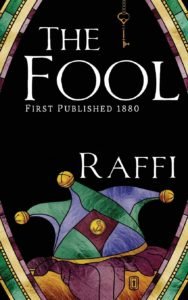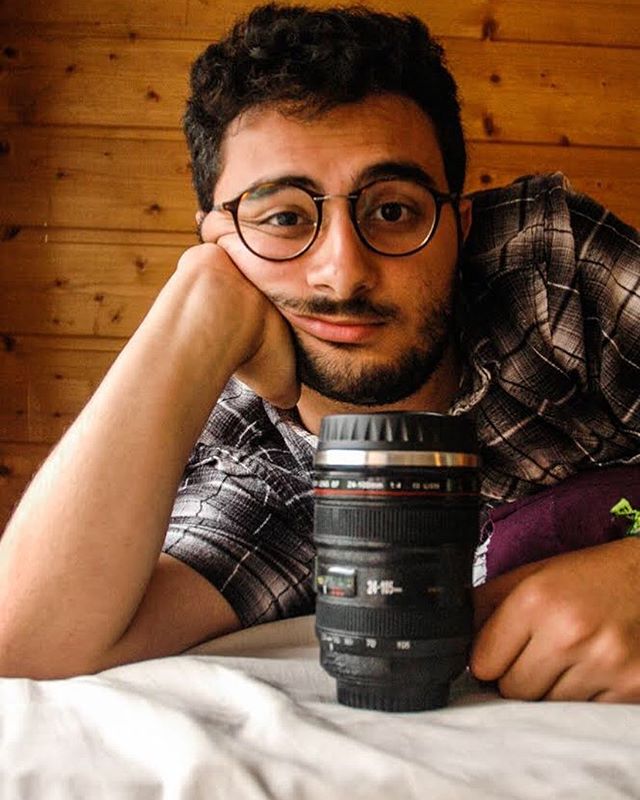 The Fool
The Fool
By Raffi
First published in 1880
Sophene Pty Ltd, 2020
354 pp.
$18.00 paperback
I’m outside a hidden gem of a café, warming up with an “Armenian blend tea,” my face half-frozen, nose a little red, fingers warm enough to type, when everyone around me falls semi-silent. The silence is eerie, making me more uncomfortable than necessary. An unfamiliar Azerbaijani tune was playing on low volume from the screens around me. I log onto Twitter. Shushi was in the hands of the adversary.
I glance over at the blinking line on my Google Doc, asking me to continue writing, but I’m unable. I was comparing Raffi’s besieged Bayazit to Shushi just now, on this very same page. I can’t draw such parallels anymore. When I first started reading Beyon Miloyan and Kimberley McFarlane’s translation of Raffi’s renowned novel The Fool, the worst event of 2020, at least to me, was the Beirut blast of August 4. Little did I know.
For those unfamiliar with the novel, the story goes as follows. In the backdrop of the Russo-Turkish wars in the late 19th century, Armenians once again, have received the blow of a conflict they haven’t proactively partaken in by simply existing in Western Armenia, at a highly ethnically-polarized era in Anatolian history. A young boy called Vartan saves the day, thanks to his foolish acts of bravery. When I think of this story, I recall one of my favorite Armenian words: «կռուախնձոր», pronounced “grvakhntsor.” Trying to translate it is a pain, the word being a combination of “dispute/conflict” and “apple,” in which the apple represents Armenians, and everyone wants a bite.
I started re-reading this book when Azerbaijan launched its attacks on the 27th of September. The parallels between the two “stories” were too familiar to be true, so I scrapped my first draft and rewrote my review. I’m re-writing it again in the wake of the new peace agreement signed on November 9, which stands for everything but peace.
“Bayazit was besieged” reads the first line of the book. The Turks and Kurds have besieged a heavily-Armenian populated region. Defending Bayazit meant staying alive, an existential battle for the Armenian villagers and volunteers. I think of the theatrical Erdogan-Putin phone calls and their senseless, pointless calls for immediate ceasefires. Maybe Raffi predicted it all, but maybe also Raffi had seen the fate that Armenians were destined for repeatedly over the years. He was sure it would happen again, in the future, more than a dozen decades after his death.
Lieutenant General Shamil, the Sultan’s puppet, violently calls for the surrender of the low-on-ammo-and-food troops of Bayazit, as the commanders struggle to find a solution. They know how outnumbered Armenians were. Face-to-face battle was no longer an option, nor was it a choice. General Ter-Gukasov, the commander of the Russian forces in Yerevan, was to be their only salvation. All they needed was outreach, to ask for an extra hand in this uneven, unjust and unfair battle—a freakishly familiar mirage of what we keep seeing today, repeated a century and some later. After long table discussions, they decide to push forth their only option: sending a troop out into the darkness, hoping the letter reaches the hands of Ter-Gukasov. Nobody, at least not yet, volunteered to do so, for they had seen the barbaric reactions of the Turks and the Kurds. Negotiating with them was beyond question; it was a death wish, suicidal. Until…
“Is there not one brave heart among you all,” [the commander] cried with a tremor in his voice, “who will attempt this daring deed?”
“I will,” came the reply from one voice, and an Armenian youth drew near and took the letter. His name was Vartan.
Reading this section gives me goosebumps. I think of all of the Vartans on the frontlines in Artsakh and all of the Vartans who volunteered to fight since day one. I think of all of the Vartans who knew that they may not come back, but the collective good stood higher than their individual lives. We see moms, sisters, friends and relatives posting pictures of their Vartans on Facebook multiple times a day, with heartbreaking texts describing how good people they were. I think of all of the Vartans who transcend Raffi’s description of Vartan. Today’s Vartans are also women; they’re of all ages and come from near and far.
—-
Success! “If you only knew, Sir, how many good young men perished in that conflict!”, exclaims Vartan to General Ter-Gukasov, after successfully fooling the enemy by entertaining them for hours on end and victoriously reaching Yerevan.
I know, Vartan. I know how many good, young men perished in this conflict. I know some of them, too.
—-
I remember seeing Beyon Miloyan (one of the translators of this book) gifting The Fool to 31 random strangers on Twitter weeks before its release. When I express my appreciation for his kind act, he tells me, “It’s the best way [he] could think of, at the moment, to honor the soldiers. They’re all Vartans. This book is about them.”
I hurt as I write this because 31 was the number of Armenian soldiers who had fallen when we held this conversation. Miloyan can’t possibly gift more than 3,000 copies of the book to random strangers on Twitter anymore.
“The moon is asleep in the depths of heaven;
The bird is asleep in its soft sheltered nest;
The wind is asleep, not a leaf is in motion;
The stream is asleep, all its ripples at rest.”
—-
The book continues into chapters about village life before the war—semi-comfortable, yet so distant. Pink mountaintops; the village of O; Vartan’s love for Lala and misfortunes with Thomas Effendi; Chora the buffalo; the disappearance of Sona; red, yellow and white irises; Old Khacho; the Kurds occasionally stealing from them; the unfair tax collection; and their pointless arguments on how they’d be able to put a stop to the feeling of impending anti-Armenian doom.
Pre-war town life pushes me to write of Sarkis (the faux name of a real friend), who is sitting in front of me now. Born and bred in Stepanakert, where he thrived in his now-so-distant hometown, Sarkis is now in Yerevan in a house that’s not home. He’s in shock, disbelief and longing for a time before the war. Village life feels like a sepia memory. What was once home is now a warzone. What was once his community are now “refugees.” He’s teary-eyed in this café; he loved Shushi, and he wishes that Raffi was not so good at predictions. I stop typing, close my laptop and comfort him.
—-
I won’t spoil the second half, because you should read it yourself. The beauty of this book is almost always miscredited to the plot, or the bravery of Vartan, but it’s more than that— beyond only guns, guts and gore. It’s the nuances of an Ottoman Armenian life in an Ottoman Armenian village, coexisting with villagers of all ethnic and religious backgrounds, but also ultranationalist, expansionist Ottomans who wanted nothing but the removal of Armenians out of the equation, and not only. This book goes beyond the foolishness of the fool and the valor of Vartan. It’s the secret kisses and the forbidden love; it’s the household taboos of my (and probably your) ancestors. It’s the familial relations, the societal dynamics and the prejudices that we still see in the most underdeveloped of the developed world; the injustices, or the proper lack thereof, the destiny of a landlocked people, the disputes and the apples, the borrowed and the blue.
The release of The Fool cannot come at a more convenient time than in the backdrop of the war raged against Artsakh. Buy it, read it, share it with your friends. This isn’t a book. It’s writing that defined generations, inspired bravery and colorized the village life we tend to see only in black and white on Houshamadyan. Thankfully, it’s marvelously translated, too. Reading the English version did not feel like reading a translation, but as though Raffi had originally written The Fool in this tongue himself—and that’s another slice of beauty. If you don’t know how to read Armenian, or don’t know Armenian at all, this book should be your next prized possession.
I dedicate this piece to all of the Vartans I know and have not met; to all of the Vartans alive, permanently injured or fallen.
“Mother, why am I unable to sleep?
I long to sleep, but my eyes will not close.
Mother, what is it that troubles me deep?
What is this fire, that burns my heart throes?”



Bravo Shahen! You have a very promising career. What wonderful creative prose you possess! Take good care of your God-given talent. On to conquering greater and wider horizons!
Great job Shahen👏
Hello, is this your poetry?
Thank you